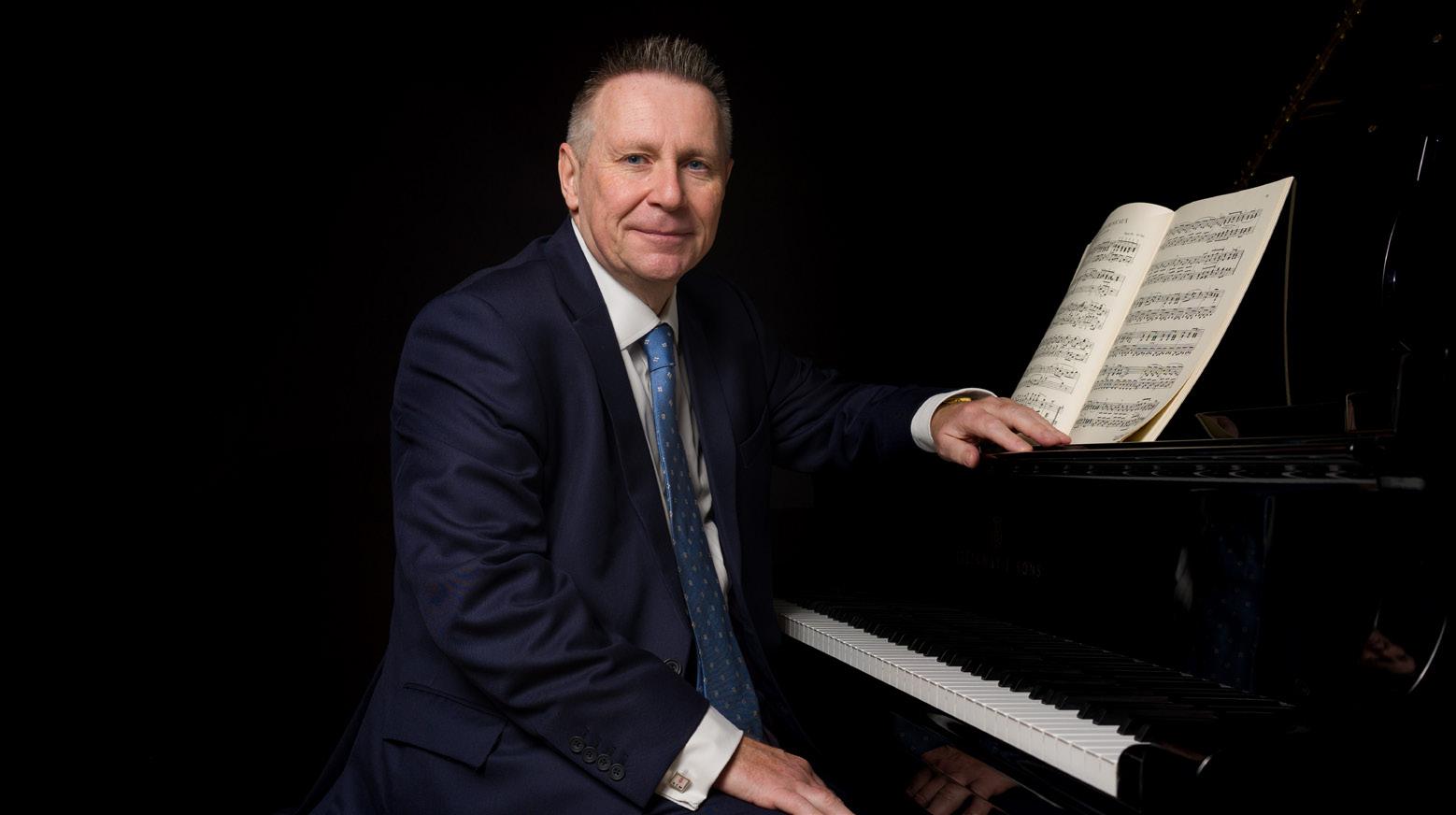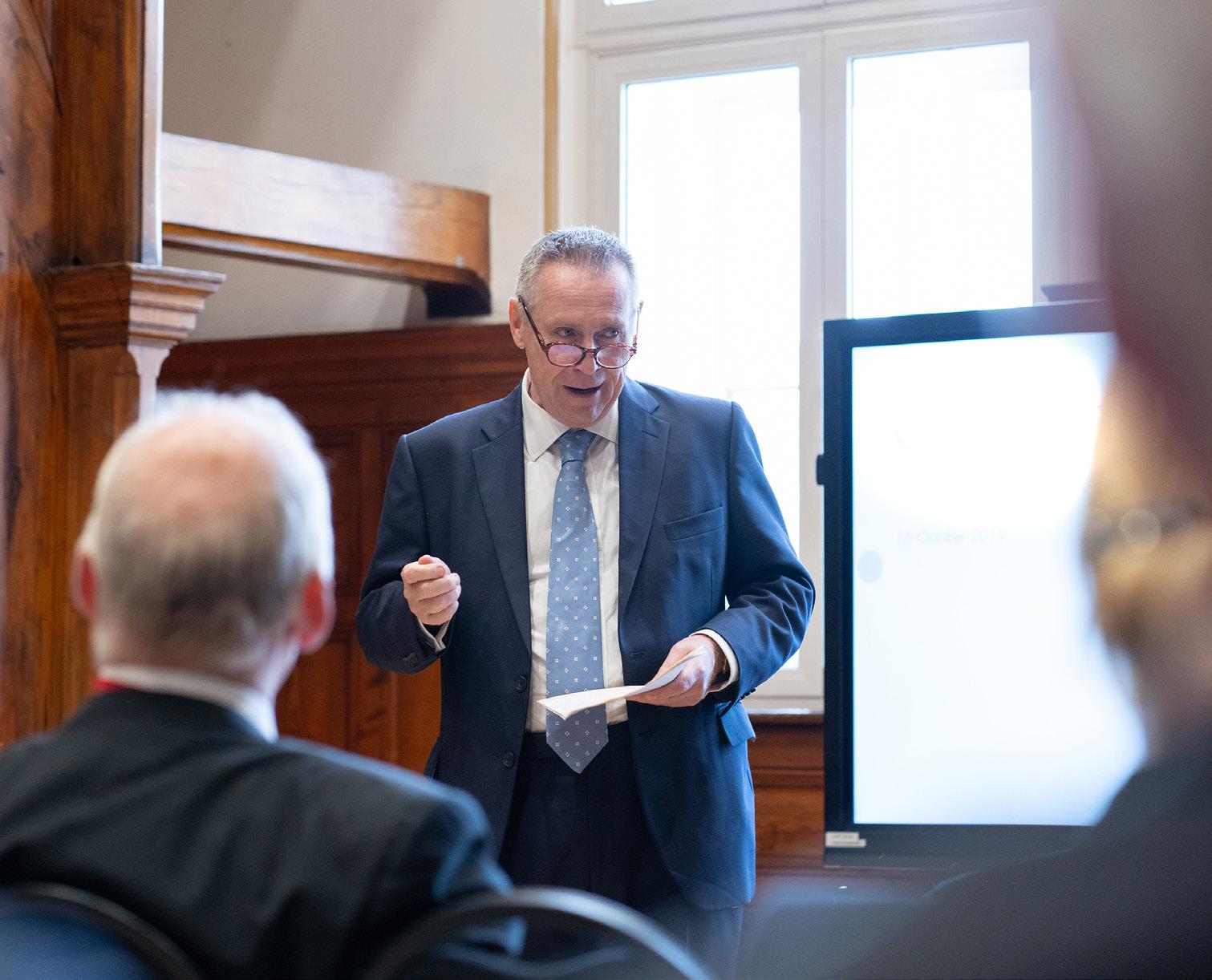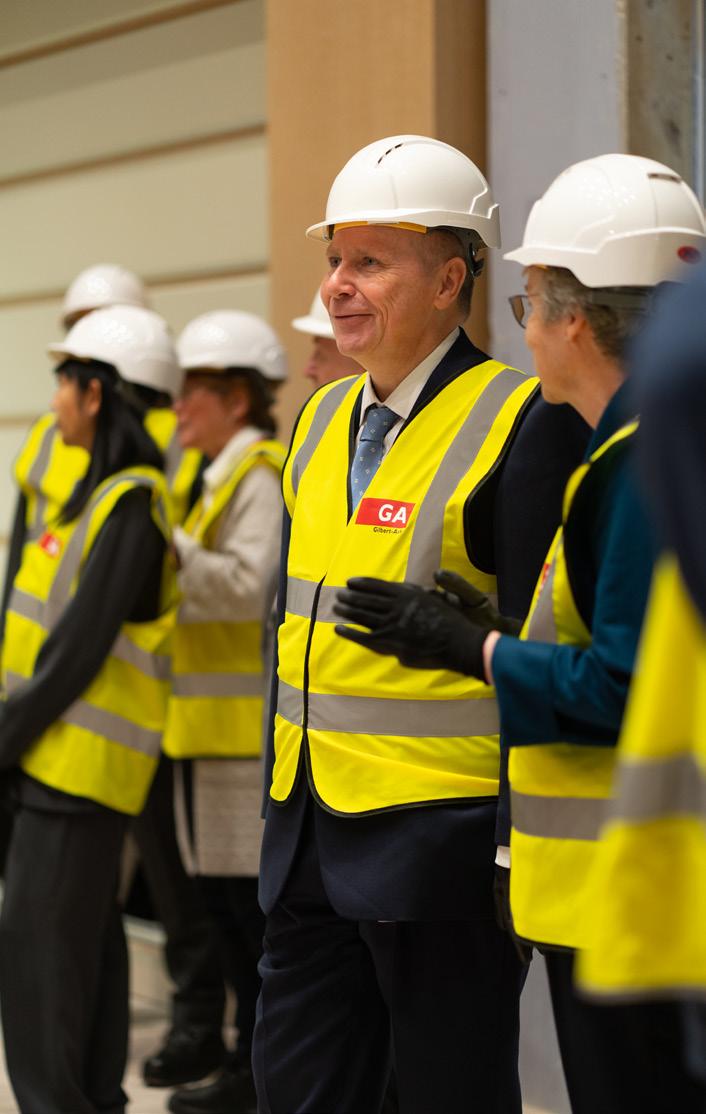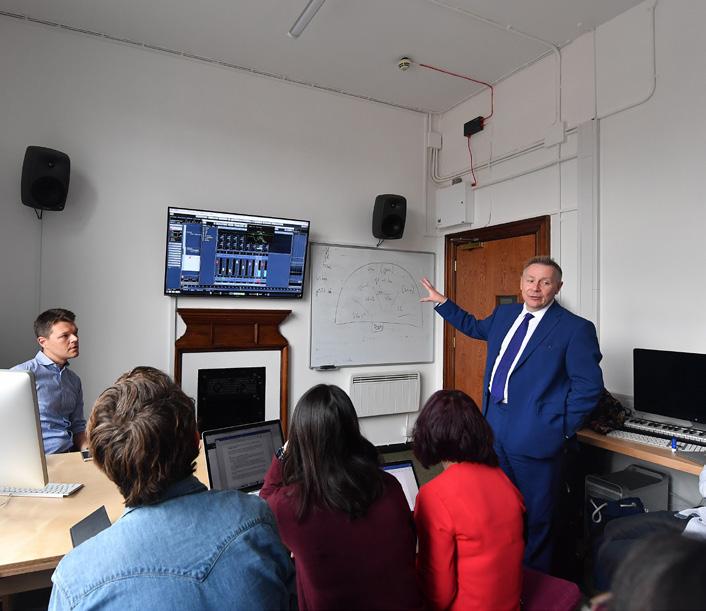
5 minute read
Lord Black of Brentwood: Challenging the threats to music education
Opposite Lord Black addresses Council (top) and students (bottom), and visits the More Music building development
CHALLENGING THE THREATS TO MUSIC EDUCATION
Lord Black of Brentwood, the Chairman of the RCM’s Council and a keen musician, makes a defiant case for the importance of music education – and explains how we all have a vital role to play in ensuring its future.

These are extraordinary times and it is up to us all to explain how vital music is for the well being and education of young people, as well as for the success of the UK’s economy.
Lord Black of Brentwood
When I went to my first meeting of the RCM Council ten years ago, I never dreamed that a decade on I would hear myself having to utter these words - that we are now in a pitched battle to secure the future of music itself. How on earth has this happened?
My own musical journey in some ways illustrates the profound change that has taken place. It began when I was at Brentwood School in Essex. I remember to this day the electrifying moment when I started for the first time to make music – as so many do – on a recorder. I was hooked. The piano, which I still play, followed, along with the trumpet, clarinet and organ. Music dominated much of my time at school – making me, I think, a more rounded and happier pupil who did better in other subjects as a result. I took ABRSM exams, I did GCSE and A level, I played in orchestras and sang in choirs. My parents encouraged me – taking me to concerts in London and buying me records (wonderfully now back in fashion). That was how, listening for the first time to the Great C Major – which will be performed at the College
this term – I fell in love with Schubert, whose music has been the enduring passion of my life.
And, of course, I took all this for granted – because music then was an opportunity that all children, no matter what school they went to or what their background, enjoyed.
Tragically, that is no longer the case in state schools, where music is under sustained and brutal attack. An understanding and appreciation of music, and the ability to take part in it, should be the birth-right of all children, not just the privilege of those who can afford it. But because of short-sighted changes to the curriculum and funding cuts for local authorities, music in many places is dying out. In many schools, there is no music provision at all. The numbers taking GCSE and A level music are plummeting. The number of teachers is declining, as is music outside the classroom. And, as a study commissioned by the RCM and others earlier this year showed, it is the most disadvantaged – who need music the most – who are suffering.
The consequences will be extremely damaging. Damaging for children, because music improves their cognitive ability and is good for their mental health, which is so important to young minds. Damaging for our economy, because the creative industries – already hanging under the dark cloud of Brexit and an end to freedom of movement, which is vital for the profession, – depend on a robust music sector. Damaging to our national identity which hinges so much on our musical heritage and international reputation for excellence. And damaging to our great conservatoires, who need a pipeline of talent from schools in the UK to complement the wonderfully diverse and wide range of students we attract from across the globe. For all these reasons, music education must not become an add-on in schools – but a must have.
The challenges are huge and the solutions not straightforward: there is no magic bullet to undo a decade of damage and decline. Many things will have to happen – changes to the curriculum, new models of regulation, increased funding as part of a long overdue new National Strategy for Music Education, and perhaps above all a realisation among politicians of all parties that for our creative economy – which supports 1 in 11 of all jobs in the UK, and makes up 5% of our economy – to flourish, then we have to value music and support it right across the education system, from early years to conservatoire or university.
So, all of us who love music have a fight on our hands. It’s something in which the RCM Council takes a profound interest. As a group we are made up of people from all walks of life. My colleagues – to whom I am indebted for their service – play an often unsung but massively important role in the life of the College in terms of governance, finance, fundraising, marketing and long-term strategy, supporting Colin Lawson and his exceptional leadership team. We are all determined to do what we can to help secure the future for music, because we know how important it is for future generations of our children, and for the soul of our country.
And there is hope! Already some things have improved. The Russell Group of Universities – the leading ones in the UK – have changed the way they view music as a ‘facilitating subject’ for those applying to them. Work is underway – led by my colleague on Council, Veronica Wadley – on a new model music curriculum. We are promised a new National Plan soon. And above all I think the message is beginning to get home politically that this is a deeply serious problem. Certainly, the reaction I receive to speeches and questions in Parliament is overwhelmingly positive – as is the support I get from so many groups and organisations who are campaigning in this area.

Our task now is to harness that passion and energy to make the case for music and the case for change. The RCM, with its international reputation for excellence, has a profoundly important role to play.
That’s in part because we symbolise what an optimistic future for music looks like. Our amazing Sparks programme shows just how you can widen access and nurture an increasing diversity of rich talent. Our international reputation for excellence – we are consistently ranked among the top three in the world – underlines the UK’s position as a global champion of music. And the More Music campaign – led so energetically by my colleague Geoff Richards – is transforming our College for this and future generations of students, helping secure our future success. That’s exactly what a successful future for music education should look like.

But it’s also because, above all, our students and our alumni can play a part as ambassadors for music. In an ideal political world, we shouldn’t need, of course, to make the case for music. These are extraordinary times, however, and it is up to us all constantly to make that case and to explain how vital it is for the well being and education of young people as well as for the success of the UK’s economy. Talk to your MPs, talk to schools, write on your blogs and social media, talk to all those in the world of music who, like the RCM, are campaigning for change. Make sure your voices are heard loud and clear. It really will make a difference.

I know how deeply passionate all those whose lives have been touched by the College – as students, teachers, staff and Council members – are about this great cause, and it is that passion and energy which will win us through. Let the future be more music.


